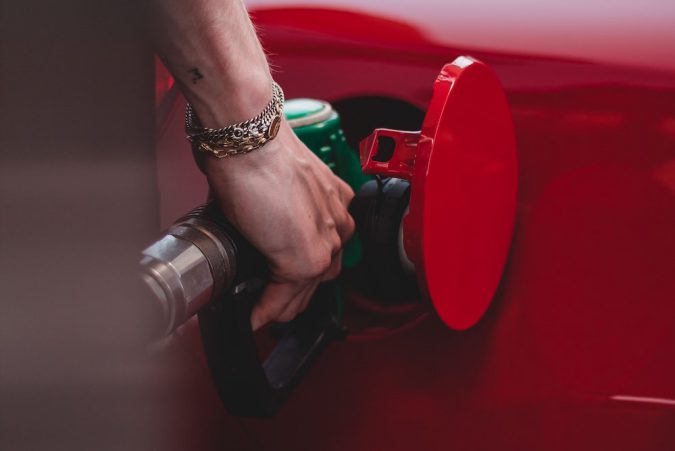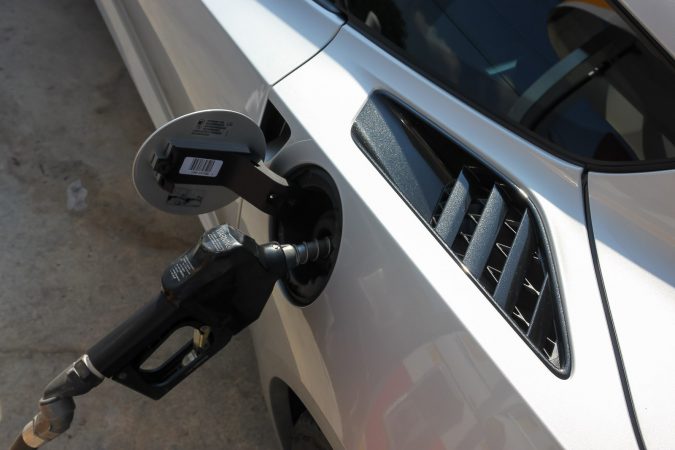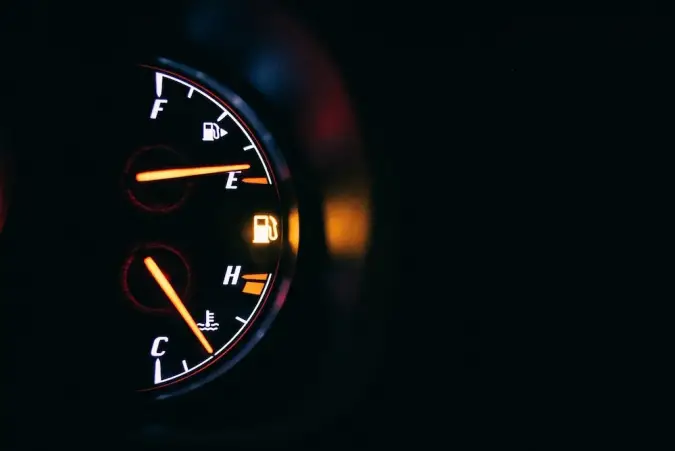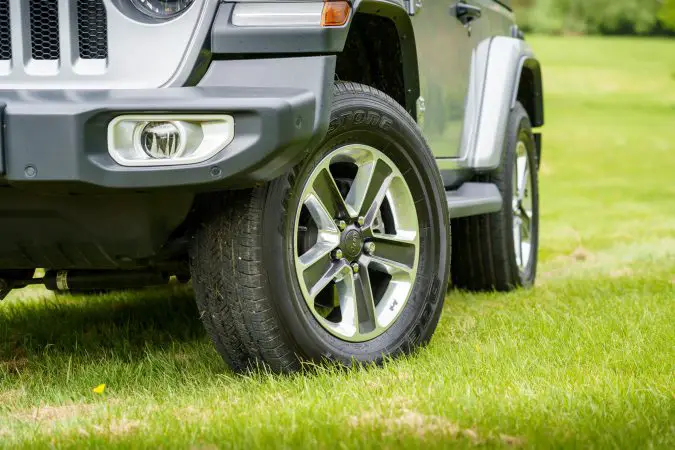When buying a car for yourself, MPG is one of the most important metrics you need to consider. Especially if you are looking for an economical vehicle. There are many fancy and luxury vehicles in the market. They are full of fancy features. But oftentimes those fancy and expensive vehicles do poorly in the MPG metric.
If money is not a problem, then go ahead and buy yourself a fancy expensive car. But economic buyers need to consider MPG. The MPG metric of a vehicle can help you predict your future cost of operation for that particular vehicle. It tells you how efficient a car is.
If you are ready to explore more about this metric, then allow us to begin this detailed guide on MPG. We will try to explain to you the MPG metric and what is a good MPG with as much detail as possible. We will also guide you on how to improve the MPG of your current vehicle.
Our guide on MPG will cover the following.
What Is MPG?
Before we explain what is a good MPG, let us begin by explaining what miles per gallon is. MPG stands for miles per gallon. So basically it shows how many miles your car can travel with 1 gallon of fuel. This is what we know as Miles per gallon or MPG. There are other names for MPG as well. Some may refer to it as Gas Mileage and some just refer to it as mileage.
Let us demonstrate MPG with an example. Suppose you have bought a car that can travel 50 miles for 1-gallon fuel. Then the mileage or MPG of your car is 50 MPG.
Based on this number, we decide which car is in the economical class and which ones are in the luxury class. The higher the miles per gallon, the more economical/ efficient the car is.
MPG differs based on car type/ class (SUV, Truck, or Sedan), engine size, types of fuel, and oil used. Even the wheels on a car can affect the MPG score.
We must mention one thing that electric vehicles (EVs) do not have the MPG metric. They don’t run on gasoline. But they do have a similar metric called the MPGe (Miles Per Gallon Equivalent) metric. This metric measures by counting how many miles an EV can travel for one-gallon gasoline equivalent of electric energy.
What Is A Good MPG For New/Unused And Old/Used Cars?
We hope that you have understood the MPG metric. Now let us explain what is a good MPG. To understand what is a good MPG, you must understand the fact that MPG differs between new cars and used cars. New cars have better miles per gallon than used cars.
That is because New, unused cars have parts that have no wear and tear damage. But used cars have parts that have depreciated over the years. Also, some used cars have replaced parts. Sometimes those replaced parts result in an increase or decrease in MPG. So MPG in used cars fluctuates and is usually lower than new/ unused cars.
Now if we are considering what is a good MPG for new cars is, then it should be between 50 to 60 MPG. However, this number can go down to 40 MPG if it is a bigger car (SUVs).
For used cars, a good MPG score will be somewhere near 40 miles per gallon. But don’t take 40 MPG as your standard baseline for used car MPG. There are other factors to consider. Factors such as miles driven, number of oil changes, parts replaced, and others. All of these factors can push the MPG score for used cars up and down.
How To Calculate The MPG Of Your Car?
In this section of our what is a good MPG guide, we will talk about how to measure/ calculate the miles per gallon of your vehicle. If you recall, we mentioned earlier that MPG is calculated by measuring the miles traveled by one gallon.
It sounds too easy. But in reality, measuring miles per gallon is quite tricky. That is because, in reality, we cannot accurately stop the car at one mile, nor can we drive the car with one gallon.
Is it impossible to measure the miles per gallon of vehicles in real life? Not exactly. You can measure the MPG of a vehicle for real, but it will be a little tricky. Here we will discuss two methods. One for new/unused vehicles and one for used vehicles.
1. MPG Calculation For New Vehicles
Let us start with the MPG calculation for a new vehicle. So logically this vehicle has never made any trip before. For calculating the MPG of this new vehicle, we need to make three refills and three trips. Later we will need to calculate the data. Since there will be three trips, we will have two results to compare the accuracy.
So when we buy the car and start riding it, it will be our trip A. Suppose you made a trip of 3100 miles. Then you added 8.6 gallons to the vehicle. Take note of these two factors.
Now on your trip B, you traveled 3562 miles and refilled 9.188 gallons of fuel. Once that’s done, on our final trip (Trip C), we traveled for 4 miles and refilled 8.813 gallons of fuel.
Now let’s calculate.
There will be no miles per gallon for trip A. Because it was the baseline trip. We will calculate MPG for trips B and C.
MPG for trip B: (3563-3100)/9.188 = 50.28 MPG
MPG for trip C: (4,000-3563)/8.813 = 49.69 MPG
As we mentioned earlier, calculating MPG in real life is very complicated. As you can see from the results, they do not match completely. There is a difference of 0.59 between the two miles per gallon. That is because we did not use a controlled environment. We may have to decelerate and accelerate on certain places in our trip. This is what caused the difference.
But since both of them are near to each other (The difference is less than 1), we can take either of them as our MPG of the new vehicle.
Verdict On The MPG Of The New Vehicle
So is 50.28 or 49.69 a good miles per gallon for new vehicles? We mentioned that MPG for new vehicles is between 50 to 60 MPG(In the what is a good MPG for new vehicles section). So it is acceptable as good miles per gallon.
2. MPG Calculation For Used Vehicles
Now let us calculate the miles per gallon for a used vehicle. As it is a used vehicle, we can measure its MPG by making only one trip.
For this trip, we first need to go to a gas station. It will be ideal if you choose a gas station that is near a straight road with low traffic. This will let us calculate the MPG as accurately as possible in real life.
After selecting the spot, go to the gas station and fill your tank till it is full. Right before starting the car and traveling, look at the odometer in the dashboard. Note down the distance traveled. Suppose it is 3100 miles. Now start driving. Drive normally. That means no rapid acceleration and hard braking.
Travel at a distance from where you can return to the gas station without emptying the gas tank. Stop at the same gas filling station and use the same filler for near-accurate results. Now before filing the gas, note down the value on the odometer. Suppose it is 3550 miles. Now start filling the gas and note down the number of gallons filled. It will be viewed in the filler meter. Suppose it is 8.7 gallons.
Now let us calculate.
MPG for the vehicle: (3550-3100)/8.7 = 51.72 MPG
That is how you calculate the MPG for an old/ used vehicle.
Verdict On The MPG Of The Used Vehicle
So will we call 51.72 MPG good miles per gallon for a used vehicle? In the what is a good MPG for used vehicles section, we mentioned that 40 MPG is good enough for all used vehicles. So 51.72 MPG is a clear steal for a used vehicle. We would suggest you buy such a vehicle for economic use. It even outperformed our hypothetical new car.
What Causes Bad MPG?
There are several reasons why you are failing to get good MPG from your car. We have seen many people complaining about getting bad MPG from top-rated MPG cars. Why does that happen? We will discuss some of the top reasons for bad MPG in this section.
1. Engine Valve Gasket
One of the major issues that can actively affect your car’s MPG is its valve cover gasket. The valve cover gasket is a sturdy rubber structure that sits between your engine cylinder head and compartments. It prevents oil from flowing out of the cylinder head while running.
A damaged valve cover gasket can let oil leak from the engine while driving. Those leaked oils won’t contribute to the car’s combustion. This way the car will lose oil and travel less distance.
These leaking oils will also cause other issues in the car. Some examples can be engine failure and burning smells. Our suggestion, change the valve cover gasket.
2. Fuel System
The fuel system can be also blamed for the low/ bad miles per gallon of your car. The fuel system stores fuel and supplies it to the engine while it is running. The system must feed a regulated amount of fuel to the engine for optimal performance. Too much will cause fuel loss and too little will cause engine failure.
The fuel system of your car is one of the most volatile systems. It can be damaged for several reasons. Bad gasoline idling in the system, corrosion in the fuel line, damaged fuel filter, and debris from the road can hit and damage the fuel system permanently.
You need to take care of your fuel system if that is the case. Visit a mechanic and they will handle the rest.
3. Exhaust System
Not many people know this, but the exhaust system of a car is equally important as any other engine system. The fuel system is to supply fuel in the engine for combusting and generating power. The exhaust system works to remove the used fuel and leftovers out of the engine.
If the exhaust system is damaged, it fails to take out the leftovers of used fuels from the cylinder heads. These leftovers then build up and reduce the efficiency of the cylinders.
This results in a performance drop of the engine, and the car gives bad miles per gallon. So take care of your car exhaust system for better mileage.
4. Spark Plugs
Now let’s talk about something specific in the engine. The spark plugs. The spark plugs are what are responsible for making the fuel combust. Each cylinder head in the engine comes with its own set of spark plugs.
So suppose your car has a four-cylinder engine. The fuel system supplies fuel to all four cylinders. But only three spark-plug work. In that case, the engine will generate less power. Also, the fuel that has been supplied to the disabled spark-plug cylinder will be lost. Because the exhaust system will take it out.
In short, a damaged spark plug is making you generate less power and lose fuel at the same time. This results in a significant drop in the miles per gallon of your car.
5. Motor Oil
The motor oil is oil that smoothens the movement inside of the engine. Now there are different types of motor oil. Synthetic, non-synthetic. And they come in two types. heavy and lightweight. Usually lightweight motor oil results in better mileage.
But if you use lightweight motor oil on a heavy engine, then the result may be the opposite. You need to use the right kind of oil for the right type of vehicle/ engine. Visit a mechanic. They will guide you through the process of choosing the right motor oil for your car engine. That shall increase your miles per gallon.
6. Idling Car
Idling the car while leaving the engine on will result in poor miles per gallon. The car engine always consumes fuel while it is running. It does not matter whether you are idling the car or driving it at great speed. The fuel system will continuously feed fuel to the engine.
So when you idle your car with its engine on, you are traveling no miles but consuming fuel continuously. This causes low mileage from the car. If you are stuck in traffic, you should not idle the engine for more than two minutes. This will cause a waste of fuel and your car MPG will drop.
7. Keeping Side Windows Open
A lot of us turn off the A/C of the car and roll down the side windows to keep ourselves cool. We often do this when we are on the highway and accelerating.
Though it is not a bad thing, if you are measuring mileage/ miles per gallon, this plays a big role.
When the car windows are rolled down, it ruins the aerodynamics of the vehicle. This means there will be more air resistance and the car will have to push through all of it to travel. This increases the energy consumption of the car and uses more fuel for less distance. So the miles per gallon of the car drops.
8. Tire Air Pressure
Tires are one of the prime components of the car. It is the only thing that is connecting the car with the Earth. So if there is a problem with the tires, the car will not be able to move efficiently on the ground.
Tires are responsible for better handling of the car, acceleration, stopping, and also the miles per gallon of the car.
Whenever we are talking about tires, there is always one thing that comes to our mind first: Tire pressure. All four tires of the car must have equal pressure for optimal performance.
The tires should not be deflated, neither should they be overinflated. It should be under necessary pressure. That necessary/ optimal pressure varies according to the specification of the cars.
If the optimal tire pressure is not maintained on all four wheels, the car will lose its miles per gallon.
9. Tire Pattern
The tire pattern is equally important as the tire pressure. What kind of tire should you get to get a good MPG from your car? That depends on the type of car and the road you will be driving it.
The best thing to do is talk with a mechanic/ car specialist about the situation. Or you can visit a tire shop and ask them for guidelines about your car tire pattern for getting the best miles per gallon.
10. Air Filter
Old and dirty air filters will reduce the MPG of your car? How? Like humans, cars also require clean air. It needs clean air to burn the fuel and make them combust in the cylinders to create power to run.
The engine requires clean air. The air filter filters the air and provides clean air to feed the engine. But with time, the air filter will become dirty. There will be debris and dust built-up on the air filter. This will reduce the supply of clean air in the car engine and the fuel will not burn properly. This makes unutilized fuel leave the car engine and make the miles per gallon drop.
11. Bad Driving Habits
Bad MPG is not always the car’s fault. Sometimes, it is the driver who is to blame. Many bad habits of drivers cause bad MPG in the car. Such examples could be, pressing the brake hard, accelerating rapidly, taking rough turns in every corner.
These behaviors cause the car to burn extra fuel and it reduces the MPG of the car. So these are the prime reasons for your car giving out poor MPG performance.
How Do You Improve Your Car’s MPG?
We have discussed what is a good MPG for new and used vehicles. We have also discussed what causes bad MPG for your car. Now we move on to the second section where we will discuss different ways of improving the MPG of your car. Be it a new, or an old car.
Reduce The Weight Of The Car
Reducing the weight of the car will make it run faster by burning less fuel. But we are not talking about cutting down unnecessary body parts of the car. No, that will ruin the beauty of the car.
We are talking about luggage in the trunk. You should not carry any unnecessary items of luggage in the car. Only carry what you will need with you in the car.
Keep Side Windows Closed And Use A/C
Keeping the side windows closed will increase the aerodynamics of the car. This will result in less air resistance and higher MPG.
If you are feeling hot in the car, then turn on the A/C. Don’t worry this will not affect the MPG of the car.
Do Not Idle The Vehicle With The Engine On
If you keep the vehicle engine on and idle the car, you will be wasting fuel. You should not idle your vehicle for more than two minutes. If two minutes pass, just turn off the engine.
Keep Tire Pressure At The Optimal level
You should regularly check your tire pressure. Keeping it at optimal will reduce friction and your car will be able to move efficiently on the road. This will increase the MPG of the car.
Do Not Drive On Bad/ Expired Gas
If your car was idle in the garage for more than three months, the fuel in the tank will go bad. Bad/ expired fuel is bad for the engine. It will ruin the fuel system and hamper the engine. This will reduce the engine performance and decrease MPG.
S if your car was idle for more than three months, siphon all the old as out. Then refill it with new gas and run it.
Avoid Aggressive Driving
Avoid all aggressive behaviors. Do not push the brake too hard. Do not accelerate rapidly, and do not take hard turns. And, do not drive at high speeds. The more speed your engine is generating, the less fuel-efficient it is getting. This will reduce the MPG. Keep it under 40 mph and drive normally.
Do Regular Maintenance
Always remember to visit the mechanic for regular check-ups. This will keep the car healthy and MPG at a standard. Plus it will increase the resale value of the car.
Gas Mileage Facts: What You Need to Know
- Good gas mileage means consuming less gas to travel a larger distance per mile. It is measured in mpg (miles per gallon).
- Type of vehicle, fuel octane, and type of fuel are important factors to determine good gas mileage.
- Hybrid and electric vehicles offer the best fuel economy, but numerous gas-powered vehicles can get more than 30 mpg.
- The mpg is usually higher on highways compared to city driving due to slower speeds, idling, and higher revolutions per minute.
- Gas mileage can also be measured in terms of gpm, which is the number of gallons needed to move a vehicle 100 miles.
- Smaller engines produce better mileage compared to larger ones because of the vehicle’s weight. The smaller the engine, the lighter the weight and the less fuel needed.
- The quality of fuel and fuel octane’s rating can affect gas mileage. Higher octane means less burning, which means operating your vehicle more efficiently.
- Type of driving conditions and how you drive can also affect gas mileage. You get better gas mileage on highways and slower driving helps save fuel (especially if you know how to get better gas mileage).
- Vehicle condition and maintenance can also impact fuel economy. A newer or well-maintained vehicle typically attains better gas mileage compared to one with numerous miles or in poor drivable condition.
- Calculating your MPG is important to know how much your vehicle is costing you every time you drive. Divide the number of miles you drove by the amount of gas you used to get your mpg.
Conclusion
So that was our guide on “what is a good MPG?” We hope that it was very helpful for you and you will be able to identify a good MPG for your vehicle.
But do remember the fact that measuring the miles per gallon in real life will not provide 100% accurate results. But if measured properly, it will give satisfactory results.






